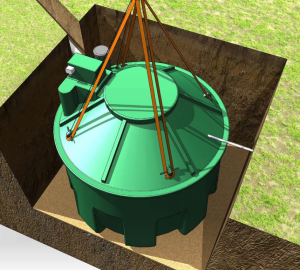Maintaining a healthy septic system is crucial for the well-being of your home and the environment. While regular pumping and proper waste disposal habits are essential, some homeowners opt to use septic tank additives as supplements to enhance their system’s performance. However, the market is flooded with various additives, making it challenging to discern which ones are effective and safe for your septic tank. In this comprehensive guide, we’ll delve into the world of septic tank additives, exploring what works, what to avoid, and how to make informed decisions for optimal septic system health.
Understanding Septic Tank Additives:
Septic tank additives are products designed to improve the function and efficiency of your septic system. They typically come in the form of powders, liquids, or tablets and contain a blend of enzymes, bacteria, or chemicals. The primary purpose of these additives is to break down organic waste more efficiently, promote the decomposition of solids, reduce odors, and maintain the overall balance of bacteria in the tank.
What Works:
Natural Enzyme-Based Additives: Enzyme-based additives are derived from natural sources and work by accelerating the breakdown of organic matter in the septic tank.

These enzymes help to liquefy solid waste, making it easier for bacteria to digest and decompose. Look for products that contain a blend of lipase, protease, and amylase enzymes, as they target different types of organic materials commonly found in septic systems.
Bacterial Additives: Bacteria play a crucial role in the decomposition process within septic tanks. Bacterial additives introduce beneficial bacteria strains into the tank, which help in breaking down solids and maintaining a healthy microbial balance. Look for products that contain high concentrations of aerobic and anaerobic bacteria, as they work together to efficiently break down different types of waste.
Oxygen-Producing Additives: Oxygen is essential for the growth and activity of aerobic bacteria, which are responsible for breaking down organic matter more effectively. Oxygen-producing additives, such as hydrogen peroxide or potassium permanganate, can help increase oxygen levels in the septic tank, promoting the growth of beneficial bacteria and improving overall system efficiency.
What to Avoid:
Chemical-Based Additives: Some septic tank additives contain harsh chemicals, such as bleach, ammonia, or caustic substances, which can disrupt the natural balance of bacteria in the tank and harm the soil environment. Chemical additives may also corrode plumbing components and cause long-term damage to the septic system. Avoid products that contain ingredients known to be harmful or toxic.
Highly Acidic or Alkaline Additives: Extreme pH levels can disrupt the biological activity in the septic tank and inhibit the growth of beneficial bacteria. Avoid using additives that are highly acidic or alkaline, as they can alter the pH balance of the tank and compromise its function. Opt for pH-neutral or mildly alkaline products that are gentle on the system.
Solids-Reducing Additives: While it may seem beneficial to use additives that claim to reduce the accumulation of solids in the septic tank, experts caution against relying solely on these products. Some solids-reducing additives contain ingredients that merely disperse solid waste throughout the tank without fully breaking it down. Over time, this can lead to clogs, backups, and costly repairs. It’s best to focus on additives that promote natural decomposition rather than those that mask the problem.
Making Informed Decisions:
When choosing septic tank additives, it’s essential to consider the specific needs and characteristics of your system. Factors such as tank size, soil type, household usage, and environmental conditions can influence the effectiveness of different additives. Here are some tips for making informed decisions:
Consult with a Professional: Before introducing any additives into your septic system, consult with a licensed septic professional or wastewater specialist. They can assess your system’s condition, recommend suitable products, and provide guidance on proper usage.
Read Product Labels Carefully: Take the time to read and understand the labels of septic tank additives. Look for products that are certified by reputable organizations, contain natural ingredients, and have proven effectiveness in independent studies.
Follow Dosage Instructions: Proper dosage is crucial when using septic tank additives. Using too much or too little can have adverse effects on your system’s performance. Follow the manufacturer’s instructions carefully and avoid overusing additives, as excessive dosing can disrupt the microbial balance in the tank.
Monitor System Performance: Keep track of your septic system’s performance after introducing additives. Monitor for any changes in odors, drainage issues, or signs of system overload. If you notice any abnormalities, discontinue use and consult a professional for further assessment.
Choosing the right septic tank additives can help enhance the efficiency and longevity of your system when selected and used appropriately. Natural enzyme-based, bacterial, and oxygen-producing additives are generally considered safe and effective for maintaining a healthy septic system. However, it’s crucial to avoid chemical-based additives and products that promise unrealistic results. By understanding what works and what to avoid, homeowners can make informed decisions to ensure the optimal performance of their septic systems for years to come.
Related Posts
- Why Do We Need Domestic Treatment Plants?
- What Size Septic Tank Do I Need For My Home?
- Septic Tank Regulations in Sydney: What Homeowners Need to Know
- How is the Carbon Cycle Involved in Wastewater Treatment
- Reinventing the Septic Tank for the 21st Century
- Is Sink Water The Same As Hose Water?
- How to Make Sure You Have The Right Wastewater Tank For Your Home
- AWTS Installation: What to Expect and How to Choose the Right Installer





